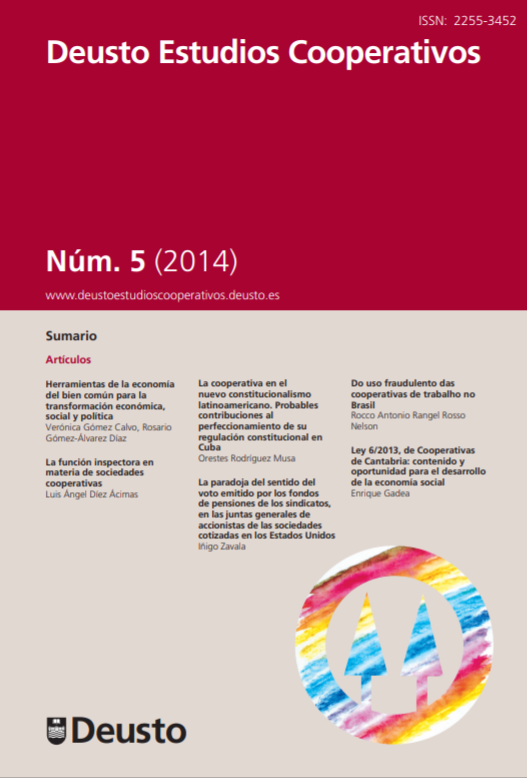Do uso fraudulento das cooperativas de trabalho no Brasil
Abstract
The normative framework that covers the protective worker, which has the purpose of humanizing and ethical content to the social profit from the capitalist activity is constantly attacked by entrepreneurs seeking in every way to reduce costs with the basic rights/fundamental labor, the result of a historical process of constitutionalization. One of the subterfuges used has been the creation fraudulent labor cooperatives, in order to denature a true employment relationship where the employer simulate this relationship through a contract of service with the cooperative, which is a intermediate hand labor, against all tenets of cooperative axiological. Research on screen makes use of a methodology for qualitative analysis, using the methods of approach hypothetical-deductive, descriptive and analytical, with the background to analyze the new normative provisions of Law n.º 12,690 of 2012, which created the milestone regulatory cooperative work with aim to provide clarity on the legal relationship between the contractor and the contractor in order to distinguish the employment relationship and the relationship of service made by a cooperative, so as to discourage the abhorrent practice of coloring the cooperative.
Received: 10 January 2014
Accepted: 17 September 2014
Downloads
The authors, by submitting their manuscripts to the Deusto Estudios Cooperativos (DEC), accept the conditions listed below on copyright and undertake to comply with them. They do not sign any document of assignment of rights to the Publisher.
1. Authorship: The author must be the sole creator of the work or legally acting on behalf of and with the full agreement of all the authors.
2. Copyright and Code of conduct:
a) Authors warrant that their work is original; has not been previously copyrighted or published in any form; is not under consideration for publication elsewhere; its submission and publication do not violate the Ethical Guidelines of DEC and any codes (of conduct), laws or any rights of any third party; and no publication payment by the Publisher (University of Deusto) is required.
b) Authors grant to the Publisher the worldwide, sub-licensable, and royalty-free right to exploit the work in all forms and media of expression, now known or developed in the future, for educational and scholarly purposes.
c) Authors retain the right to present, display, distribute, develop, and republish their work to progress their scientific career provided the original publication source (DEC) is properly acknowledged.
d) Authors warrant that no permissions or licences of any kind have been granted or will be granted that might infringe the rights granted to the Publisher.


3.jpg)
3.jpg)







